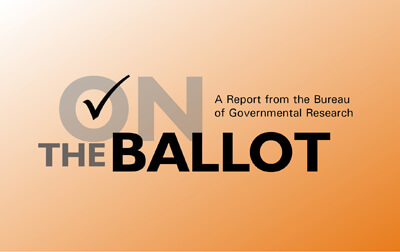
Infrastructure, bond issues dominate discussion on second day of New Orleans City Council budget hearings
By Jessica Williams
Source: The Times-Picayune | The New Orleans Advocate
October 29, 2019
Mayor LaToya Cantrell’s top public works aides offered a roadmap Tuesday for the hundreds of millions of dollars they plan to spend on streets, drainage, parks and other infrastructure in coming years, even as they cautioned that much of it is dependent on voters giving them the go-ahead next month.
New Orleans City Council hearings on the city’s proposed 2020 budget continued Tuesday with a focus on infrastructure, and looming over the discussion was the package of infrastructure-related initiatives Cantrell will ask voters to approve Nov. 16.
The package includes $500 million of bonds, a sales tax on short-term rentals and another 3-mill tax for infrastructure maintenance — a measure the council has warmed up to in recent months and that some members praised on Tuesday.
Mentions of how such a cash injection would help revamp long-distressed city buildings and aid the city’s efforts to grab more than $1 billion in Federal Emergency Management Agency grants for crumbling roads were plentiful.
Generally, the bonds would pay for a mix of affordable housing, street improvements, landscaping, fixing bridges, improving parks and recreational facilities, buying equipment, and upgrading public buildings.
The 3-mill tax would pay for traditional infrastructure maintenance needs, but also for public safety vehicles and equipment needed for city buildings.
If both measures are approved by voters, the administration would be able not only to repair city buildings but more quickly spend FEMA money to repair pothole-ridden streets. Those grants are issued on a reimbursable basis, meaning the city has to spend money in order to receive money.
“That’s why we need those bonds, to help us front those costs of a billion-dollar program to move these projects forward,” said Joe Threat, director of the city’s Project Delivery Unit.
Although a debate about how far the city should “roll back” tax rates to relieve property owners’ mounting tax burdens has taken center stage so far in the 2020 budget discussion, Cantrell and the council appear to have found common ground on the package of bonds and new taxes. While the proposed bond issues would be funded through an existing 25-mill tax, the 3-mill tax is new. But Cantrell’s camp has said property owners won’t feel the hit since a tax to pay off other bonds decreased by the same amount last year.
Some members criticized the mayor’s spending plan for the 3-mill tax as too vague earlier this summer, but they calmed their criticisms after negotiating with the administration over the plan’s language.
Officials also were jubilant about a Tuesday endorsement of the proposals by the Bureau of Governmental Research, which Deputy Chief Administrative Officer for Infrastructure Ramsey Green said was “tough support” to get.
From 2020 to 2024, the city is in line to receive $938 million in FEMA reimbursements, provided it has the cash to “front” the projects in the first place. It will also get $910,000 in state capital outlay funding, $750,000 in other capital funds and $82 million in self-generated capital funds.
About $900 million of that total is reserved for street and stormwater management projects, while about $78 million will help pay for the new terminal at Louis Armstrong International Airport. Another $36 million from FEMA will fund a medical services facility for the city’s jail.
The $910,000 in state money will help pay for an Algiers soccer complex, while a pool of $4 million would pay for work on buildings owned by the French Market Corp., emergency repairs to city buildings and other costs.
The French Quarter building repairs would eat up most of the $4 million, city staffers said. Only about $750,000 over four years would be reserved for emergency repairs of other buildings.
In 2020, only $150,000 is tagged for those emergency repairs, an allocation Councilwoman Kristin Gisleson Palmer said was “ridiculously low.”
Even the $1 billion total in capital money over four years is about $1.3 billion less than city departments requested.
The city also continues to spend proceeds associated with a $120 million bond program voters approved in 2016. About $70 million of those bonds were sold in 2016 and were allocated in the 2017 budget. The remaining $50 million were sold in September and will be spent starting in 2020, officials said.
Those projects include a new police station in Algiers and multi-purpose buildings at Eastshore and Village de l’Est playgrounds, among other priorities.
Fair Use Notice
This site occasionally reprints copyrighted material, the use of which has not always been specifically authorized by the copyright owner. We make such material available in our efforts to advance understanding of issues and to highlight the accomplishments of our affiliates. We believe this constitutes a “fair use” of any such copyrighted material as provided for in section 107 of the US Copyright Law. In accordance with Title 17 U.S.C. Section 107, the material on this site is available without profit. For more information go to: US CODE: Title 17,107. Limitations on exclusive rights: Fair use. If you wish to use copyrighted material from this site for purposes of your own that go beyond “fair use,” you must obtain permission from the copyright owner.
